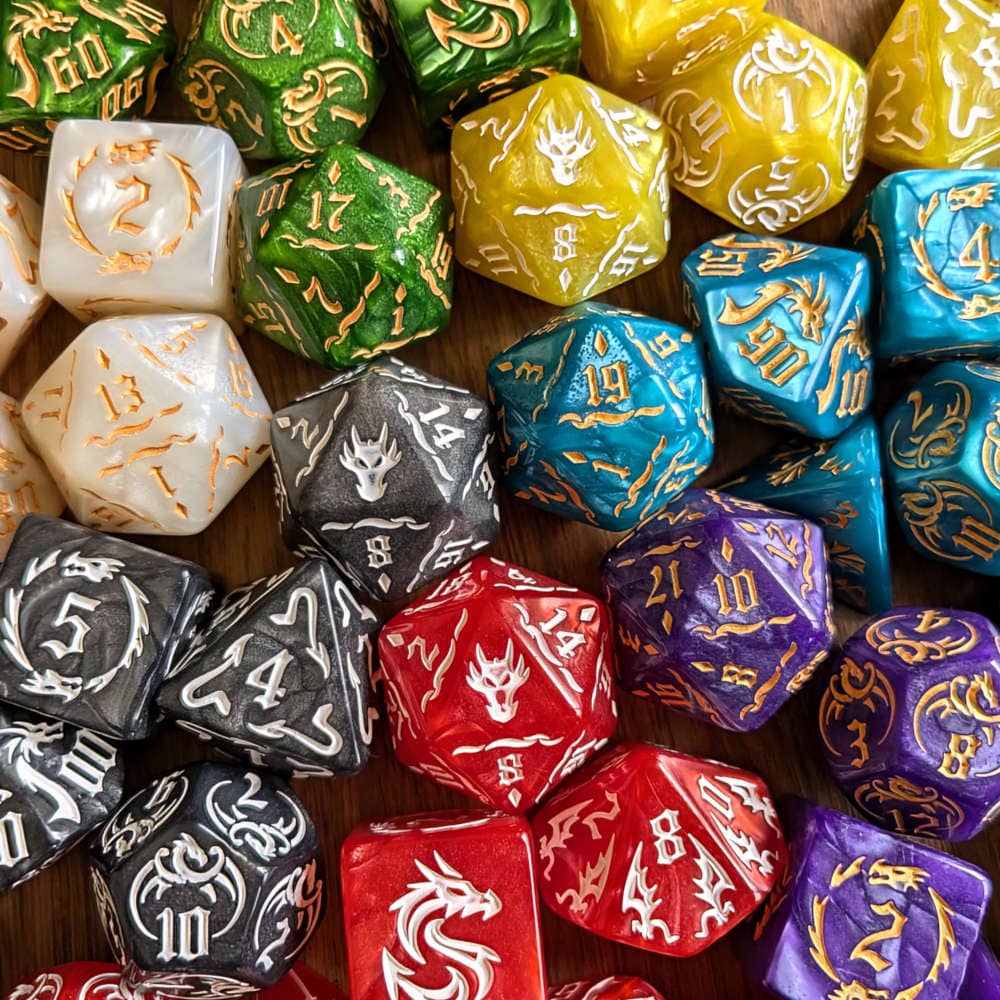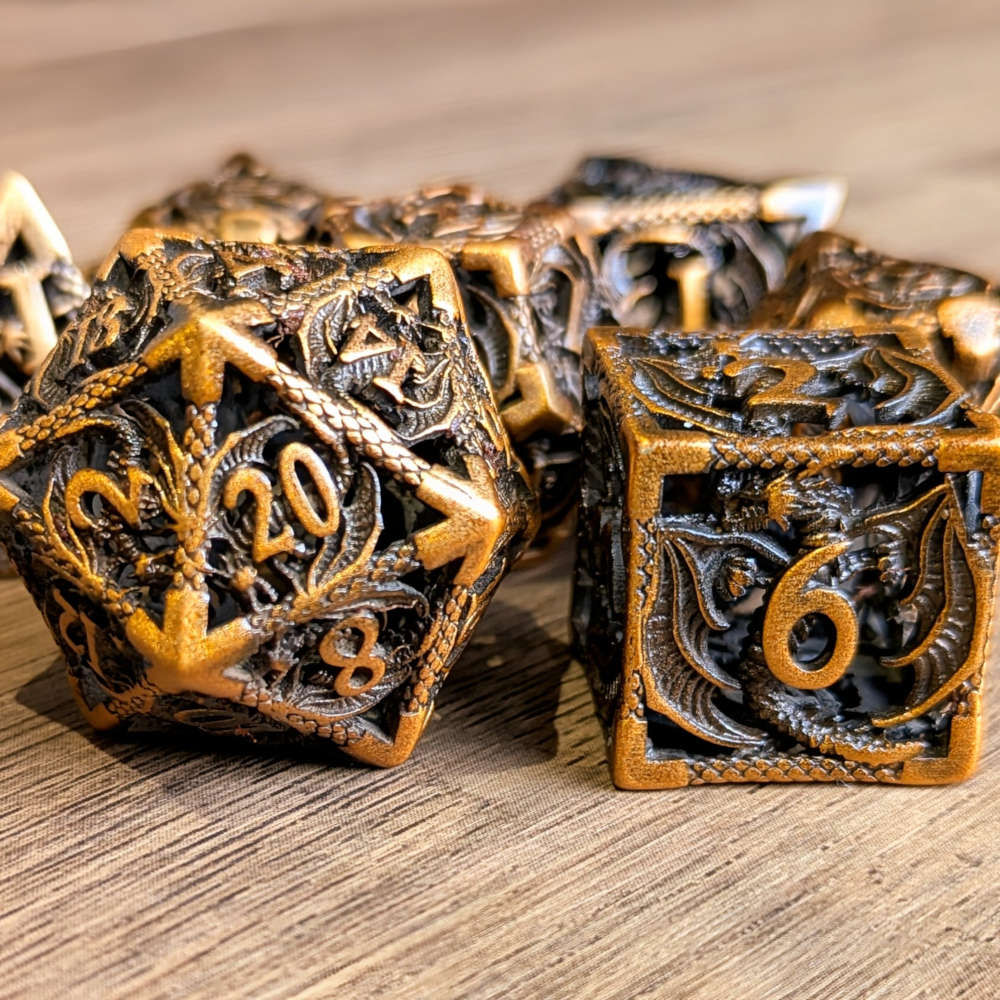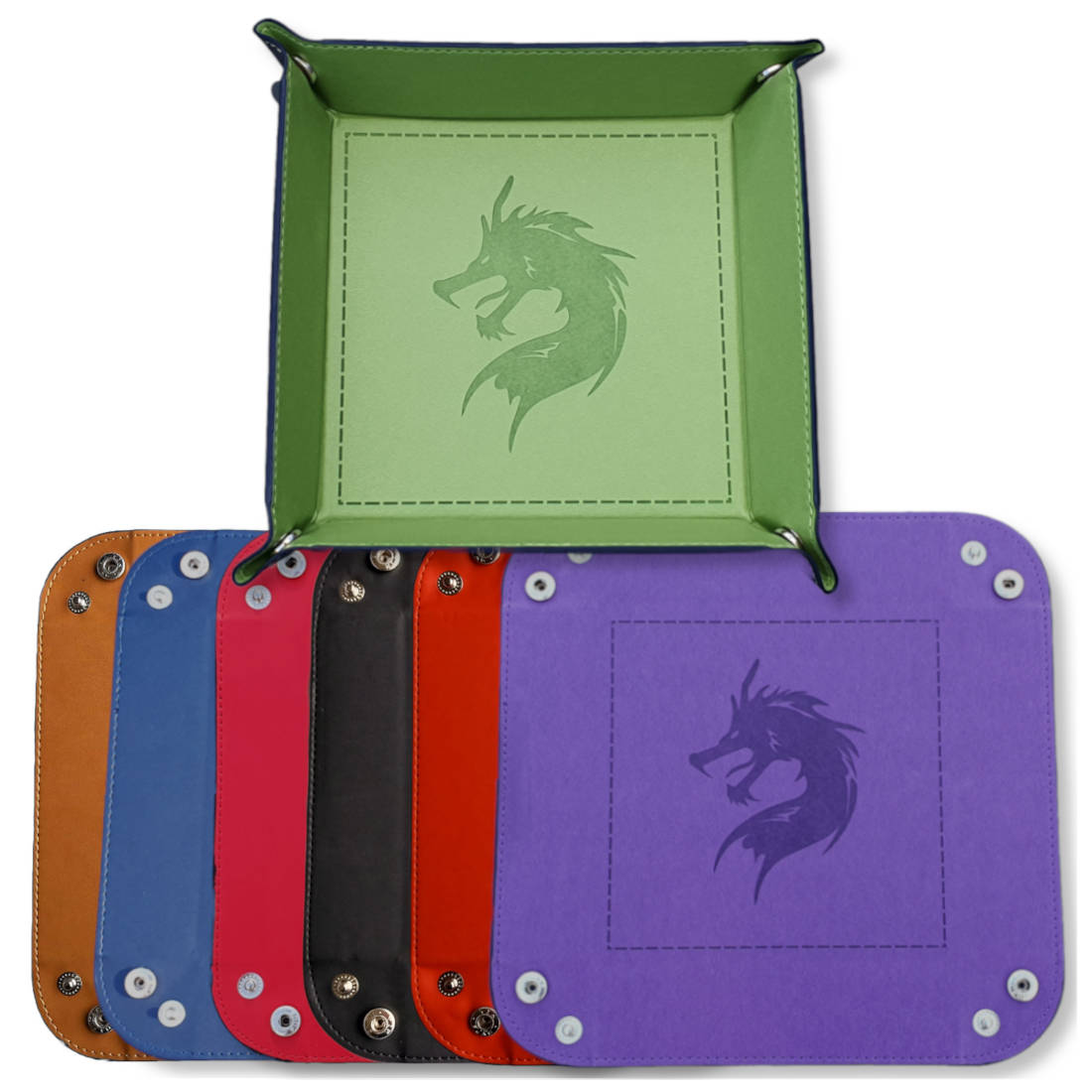How many dice should you have for D&D?

In the realm of Dungeons & Dragons, where epic quests, daring battles, and spellbinding tales unfold, dice are more than mere polyhedral shapes. They are the arbiters of destiny, shaping the fate of your characters and the outcomes of your actions.
In this guide, we'll uncover an answer to the question: "how many dice should you have for D&D?" Prepare to embark on a journey where these small, numbered cubes become the keys to your adventures' success.
Why do you roll dice in D&D?
The necessity of rolling dice is rooted in the very essence of D&D. Dice introduce an element of chance: injecting excitement, tension, and uncertainty into each action.
The dice you need to use in D&D depend on the type of roll you are going to make. Whether you are rolling to hit with a weapon or spell, making a skill check, or unleashing the damage of your attack, each unique situation calls for a specific type and number of dice.
If you're looking to dive even deeper into the realm of dice mechanics, consider delving into our guide that explains how D&D dice work. With these small, numbered cubes, you possess the power to shape the course of your epic tales.
What dice do I need for D&D?
Technically, you don’t need any dice to play D&D. You could use an online dice roller or app. But if you want to use real dice, the absolute minimum to play DND is a set of 7 dice: one d4, d6, d8, d10, d%, d12, and d20.
These dice form the core toolkit for adventurers ready to embrace the myriad challenges and triumphs that D&D offers. But for those who seek an efficient rhythm in gameplay, amassing an array of dice sets can be advantageous.
Consider this: as a rogue, you'll often unleash a flurry of d6 rolls for sneak attacks. Equipping yourself with additional d6 dice helps you roll quicker, keeping the gameplay flowing – so long as your dice don’t roll off the table. If they do, check out our guide that explains what to do when your dice roll off the table.
Ultimately, the choice of dice you assemble is a personal one, influenced by your playstyle and preferences. Whether you opt for a minimalistic collection or an arsenal brimming with variety, each die resonates with the essence of your character, ready to roll the dice of destiny with every turn of the adventure.
Does everyone need their own dice for DND?
Yes, each player should have their own set of dice.
Picture this: your party stands on the precipice of a thrilling encounter, tension hanging in the air. Each character's fate hinges on the roll of the dice. Sharing a single set of dice among multiple players can quickly transform this captivating moment into a logistical challenge. Passing dice back and forth will disrupt the narrative flow and lead to unintentional delays.
As the popularity of Dungeons & Dragons continues to soar, a rich assortment of dice sets has emerged, each an expression of artistry and imagination. These sets come in an array of enchanting colours and designs, and many feature different materials. With so much choice, check out our guides to help you find the right dice for you:
If you’re a Dungeon Master, you’ll also want your own dice. For more information, check out our guide to find out how many dice a DM should have.
Can you play DND with one dice set?
Yes, you can play D&D with one dice set. However, some players prefer having two or three sets will cover almost everything you could ever want.
For example, having 2d20s will help if you need to roll a d20 with advantage or disadvantage. Having a few d6 dice will be vital if you are a rogue so you can roll sneak attack. If you’re playing a spellcaster such as a warlock, having multiple d10 dice will help as well.
Having more dice can help you get rolls done faster, which keeps the game flowing.
Delving deeper into the fascination with dice, we conducted a poll on Reddit. The results offered a spellbinding glimpse into the dice-hoarding phenomenon:
- A staggering 35% of respondents proudly confessed to owning 10 or more dice sets, showcasing the passionate allure these polyhedral companions hold.
- In second place, with an impressive 25%, were the adventurers whose collections boast 3-5 dice sets.
This resonates with the truth that each roll of the dice marks a turning point in an epic saga, and the convenience of having multiple sets at the ready allows for uninterrupted storytelling and adventure.
Do I need a d100 as well?
In a standard set of 7 dice, you'll find a d10 and a percentile die (d%). When you roll a d100 this way, you get a unique two-digit combination, where the percentile die represents the tens and the d10 signifies the units.
However, the allure of the d100, a majestic 100-sided die, beckons to adventurers seeking a touch of grandiosity. Imagine holding a polyhedral relic that boasts a one-in-a-century chance. While possessing both a d10 and a percentile die suffices for percentile rolls, the d100 adds a tactile thrill to your journeys. Rolling this colossal ball unveils your destiny with a satisfying gravity, as each face carries the promise of an extraordinary outcome.
Yet, rest assured, you don't need both dice types to play Dungeons & Dragons. Having either a d10 and a percentile die or a d100 grants you access to the full spectrum of possibilities. Opt for the elegance of the percentile system or embrace the audacity of the d100; the choice is yours.
Why do DND players have so many dice?
Why do D&D players amass a treasury of dice that would make a dragon envious? Let's roll through the reasons:
- Versatility: different dice cater to distinct needs, from combat to skill checks, offering a sense of purpose to each piece in the collection.
- Abundance: spare dice can mitigate the risk of accidental launches off the table or unfortunate losses in the heat of adventure. They can also be fun to play with or look at, even if you don’t need them straight away.
- Smooth gameplay: A wide array of dice can expedite gameplay by allowing several rolls to occur simultaneously.
- Expression: dice embody personal style, with vibrant colours, precious metals, or intricate designs reflecting a player's character and preferences. It can also be fun to buy mystery dice sets, to see which dice fate wants you to use on your next adventure.
Some dice enthusiasts, embracing the intoxicating allure of these polyhedral artifacts, become what is endearingly known as “dice dragons”. You may have also heard the term “dice goblin”. These are two very similar terms to describe those who insatiably hoard dice. Perhaps you might be one - find out what makes you a dice dragon.
As your journey through the realm of dice draws to a close, may your collection continue to grow, and your tales be forever illuminated by the numbers they reveal. If you're looking to grow your dice hoard, delve into our exquisite D&D dice sets, including the opulence of DND metal dice or the mystique of liquid core dice.





